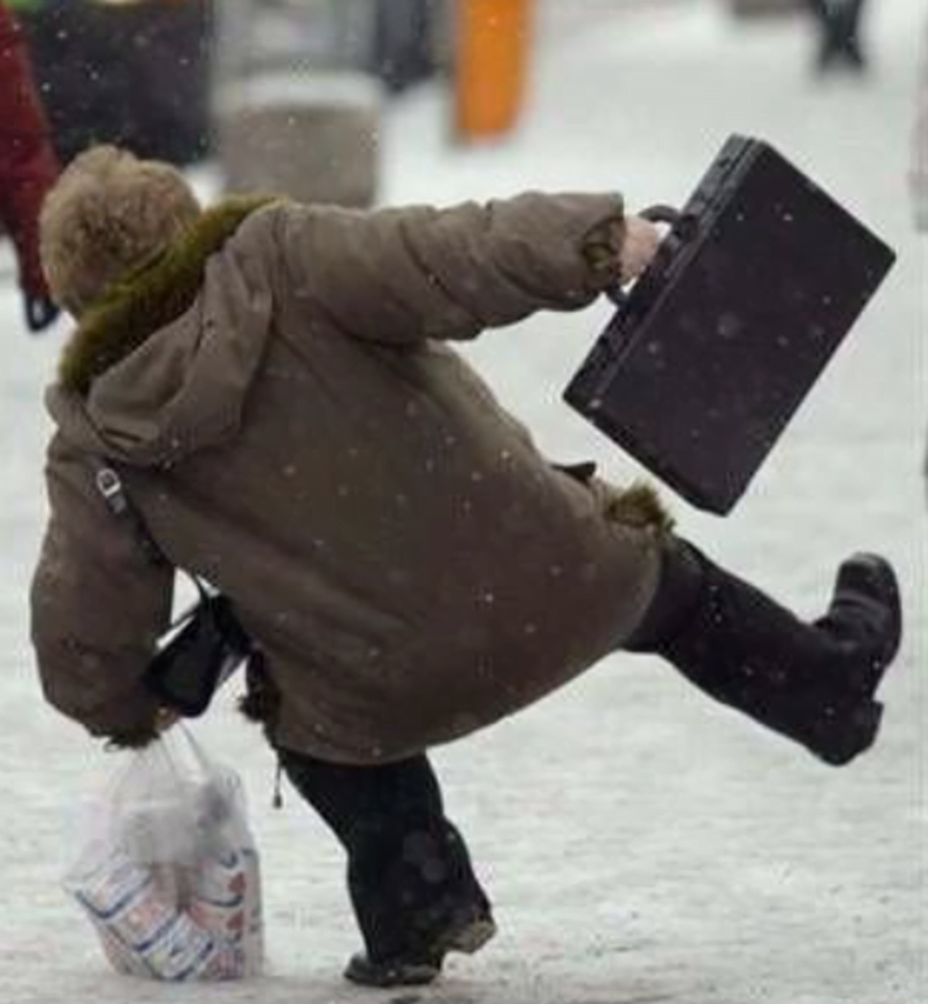
Don’t let this happen to you!
Some call it winter, but for personal injury lawyers it is a good way to fill out your early season case load goals. Some may ask are these really cases? The answer is an unqualified YES. Why? Well, generally people with cases will have fractures from their falls and fractures are really indisputable as to what caused the injury. Often, people come to me with videos showing the police and EMS workers slipping as they walk across the parking lots in their work boots.
As you may know from my prior writings, personal injury lawyers do not do well by taking cases where both negligence and causation or injury is disputed. It is just too hard a fight to take and is not good for business and will not result in a happy client.
So, what is a good slip and fall case? Well, during snowy years, people slip and fall on commercial properties and often in commercial parking lots due to negligent snow or ice maintenance. If you fall and fracture your lower leg and need surgery as a result of a fall on ice, your case is going to be worth over $200,000 and the proof of negligence is the only issue.
Are these real cases? Oh, yes. Often, a client comes to me with the following story, I was approaching stores in an outdoor mall and fell on an icy sidewalk. Or, I was going to a doctor’s appointment and fell on an unsalted parking lot.
So, who is at fault here? While the landlord is plainly liable for maintenance of their property and hence a defendant, the landlord usually subcontracts the sidewalk and parking lot maintenance to the snow contractor or landscaper. While the landscaper / snow contractor has years of experience doing their jobs, they also are more focused on hitting all of their customers than they are in doing a great or even a good job. What makes these cases easier is that the records of snow removal, storm response, and salt spreading are often poor to non-existent.
However, in Pennsylvania and a lot of northern states, a landlord is not liable during active snow falls, ice falls, etc. We have a hills and ridges doctrine that basically says a fall during storms or generally slippery conditions during active precipitation is not the landlord’s fault. So, usually, landlords have a day or two to clean up a property. But, problems often arise when snow contractors plow snow to the side of a lot, the temperature rises, the snow melts, and then refreezes into a sheet of ice. People then fall on clear black ice and it is plainly the fault of the contractor.
These refreeze cases are among the strongest because they were caused by the contractor’s plowing and not salting enough or not anticipating the refreeze effect.
The other strong cases are the broken downspout or gutter cases. In a lot of snow and ice cases, the landlord will say that they never had a fall or were never on notice of the danger. While that is an oft-used defense, more often, an ice slick across a walkway is the result of poorly managed gutters either spilling water out of a gutter or broken gutters. Both of these situations are just negligent maintenance and easily proven. These cases are not the contractor’s fault and fall more on the landlord.
